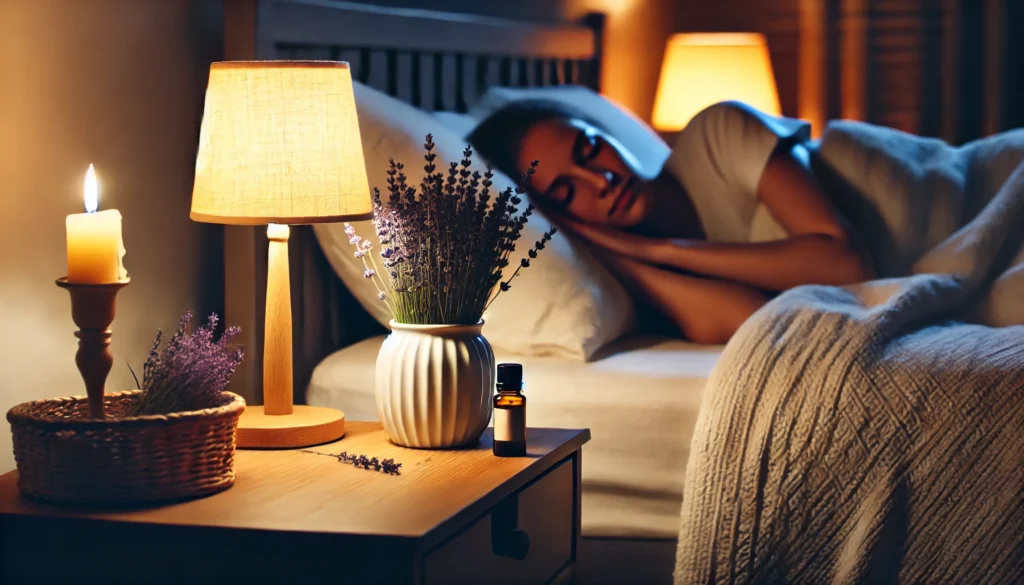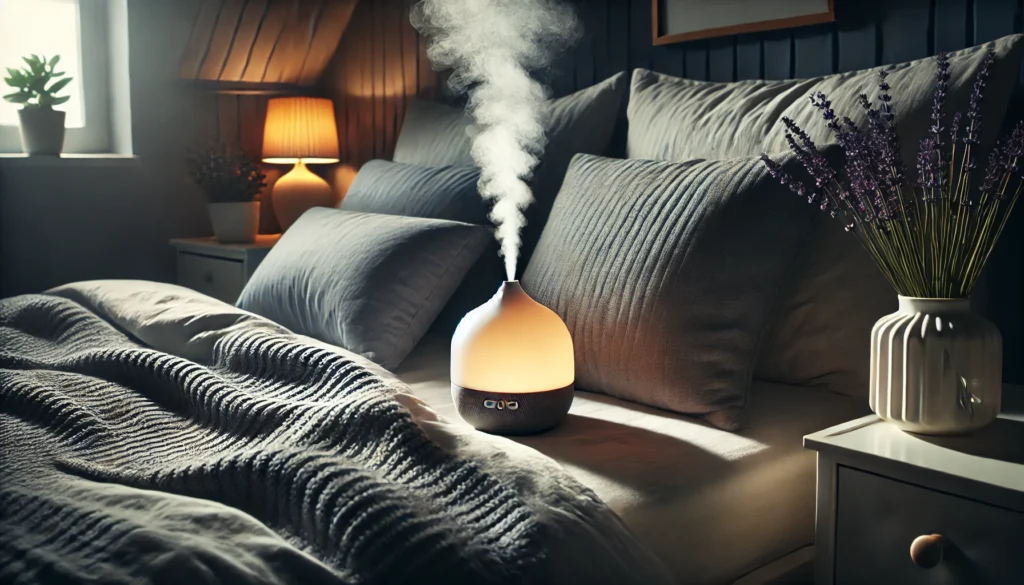Lavender, scientifically known as Lavandula angustifolia, has been used for centuries in traditional medicine. The essential oil extracted from lavender flowers is renowned for its calming and soothing properties. This perennial herb, native to the Mediterranean, has a rich history that intertwines with cultural practices and modern scientific discoveries.
Historical Use of Lavender
The use of lavender dates back to ancient civilizations, including the Greeks and Romans, who utilized it for its therapeutic benefits. In ancient Egypt, lavender was a prized commodity used in embalming and cosmetics. These early uses highlight lavender’s longstanding association with health and healing.
In medieval Europe, lavender was considered a potent remedy for various ailments. It was often used to fight infections and was believed to ward off the plague. These historical practices laid the foundation for lavender’s reputation as a healing herb.
Extraction Process and Composition
The extraction process of lavender essential oil involves steam distillation, which captures the volatile compounds responsible for its distinctive aroma and therapeutic effects. This method ensures that the integrity of the oil’s active components is preserved, making it highly effective.
The primary components of lavender oil are linalool and linalyl acetate, both of which contribute to its relaxing properties. These compounds have been studied extensively for their ability to promote relaxation and reduce anxiety, further cementing lavender oil’s status as a natural relaxant.
Modern Applications
In today’s world, lavender essential oil is widely used in various products, from skincare to aromatherapy. Its versatility makes it a popular choice for those seeking natural solutions for stress relief and sleep enhancement.
The increasing demand for natural and organic products has propelled lavender oil into the spotlight, with many consumers turning to it as a safer alternative to synthetic remedies. This trend reflects a broader movement towards holistic health and wellness.
You May Also Like: Benefits of Consistent Sleep Schedules Explained

Lavender Essential Oil and Sleep: A Scientific Perspective
The Science Behind the Scent
Lavender essential oil’s ability to promote sleep has been substantiated by scientific research. Studies indicate that lavender affects the body’s parasympathetic nervous system, which controls the relaxation response. This interaction is crucial in reducing stress levels and enhancing sleep quality.
Research published in various scientific journals has consistently shown that lavender oil can improve sleep duration and quality. By influencing the autonomic nervous system, lavender helps create a physiological state conducive to sleep, allowing individuals to fall asleep more easily and enjoy deeper rest.
Neurochemical Interactions
Lavender oil’s impact on the central nervous system is mediated through its influence on neurotransmitters. Linalool, a key component of lavender oil, has been shown to modulate the activity of gamma-aminobutyric acid (GABA) receptors. GABA is an inhibitory neurotransmitter that reduces neuronal excitability, fostering relaxation and sleep.
The modulation of GABA receptors by lavender oil components provides a natural means of achieving sedation and relaxation, akin to that of certain pharmaceuticals. This makes lavender oil an attractive option for individuals seeking non-pharmacological approaches to sleep enhancement.
Comparative Studies and Clinical Trials
Numerous clinical trials have compared the efficacy of lavender oil to conventional sleep aids. These studies often highlight lavender’s ability to improve sleep quality without the side effects associated with traditional sleep medications.
For instance, a study conducted in a sleep clinic found that participants who used lavender essential oil reported significant improvements in sleep latency and overall sleep satisfaction. Such findings reinforce lavender’s potential as a viable alternative for sleep improvement.
Historical Context and Modern Trends
Lavender’s association with relaxation and sleep is not a modern discovery. The ancient Egyptians used lavender in their embalming rituals, while the Romans incorporated it into their bathing practices for its calming effects. Throughout history, lavender has been utilized in various cultures for its therapeutic properties.
Ancient and Cultural Practices
In addition to its use in ancient Egypt and Rome, lavender has played a role in traditional medicine across different cultures. In India, lavender has been used in Ayurvedic medicine for its calming effects, while in China, it has been incorporated into traditional remedies for stress relief.
These cultural practices underscore lavender’s universal appeal and its longstanding reputation as a natural remedy for relaxation and sleep.
The Rise of Aromatherapy
The resurgence of lavender essential oil can be attributed to the rise of aromatherapy, a practice that harnesses the therapeutic properties of essential oils. Aromatherapy has gained traction as a holistic approach to health and wellness, with lavender oil being one of the most popular choices for promoting relaxation and sleep.
As more individuals seek natural ways to enhance their well-being, aromatherapy continues to grow in popularity, further solidifying lavender oil’s position in the wellness industry.
Consumer Demand for Natural Solutions
In contemporary times, the use of lavender essential oil has surged, aligning with the growing trend towards natural and holistic health practices. The wellness industry has embraced lavender oil as a staple in aromatherapy, sleep aids, and personal care products. This resurgence is partly due to increasing consumer awareness of the potential side effects of synthetic sleep medications and a preference for natural alternatives.
Consumers are increasingly seeking products that are not only effective but also safe and free from harmful chemicals. Lavender oil fits this criterion, making it a favored choice among those looking to improve their sleep naturally.

Practical Applications of Lavender Essential Oil for Sleep
Aromatherapy Practices
Incorporating lavender essential oil into your nightly routine can be a simple yet effective way to enhance sleep quality. Aromatherapy, the practice of using essential oils for therapeutic purposes, has gained popularity as a method to promote relaxation and well-being.
To use lavender oil for sleep, consider adding a few drops to a diffuser before bedtime. The aromatic molecules will disperse into the air, creating a calming environment conducive to sleep. Alternatively, you can apply diluted lavender oil to your pulse points or add it to a warm bath for a soothing pre-sleep ritual.
Lavender in Sleep Products
The demand for sleep-enhancing products has led to the development of various lavender-infused items. From pillow sprays and sleep masks to scented candles and herbal teas, lavender’s calming properties are being harnessed in innovative ways to support restful sleep.
When choosing lavender-infused products, ensure that they contain pure essential oil rather than synthetic fragrances, which may not offer the same therapeutic benefits.
DIY Lavender Solutions
For those who prefer a hands-on approach, creating DIY lavender solutions can be an enjoyable and cost-effective way to incorporate lavender oil into your sleep routine. Simple recipes for lavender-infused lotions, pillow mists, or bath salts can be easily made at home, allowing you to customize your sleep aids to your liking.
Experimenting with different combinations of lavender oil and other essential oils, such as chamomile or bergamot, can enhance the overall relaxing effect, providing a personalized sleep solution tailored to your needs.
Future Implications of Lavender Essential Oil Use
The continued exploration of lavender essential oil’s potential benefits is likely to yield new insights into its applications for sleep and beyond. As research progresses, the scope of lavender oil’s therapeutic uses may expand, offering additional natural solutions for health and wellness.
Integrating Lavender Oil into Holistic Health Practices
Health and wellness coaches, science journalists, and biohackers are increasingly recognizing the value of integrating lavender essential oil into holistic health practices. By understanding the scientific basis of its effects and applying this knowledge practically, these professionals can provide clients and readers with well-rounded, evidence-based advice.
For biohackers, lavender essential oil can be a valuable tool in optimizing sleep, a critical component of overall health and cognitive function. Its natural properties align with the biohacker’s goal of enhancing mental and physical performance through innovative and scientifically grounded methods.
Lavender in Modern Medicine
As scientific research on lavender essential oil continues to expand, its potential applications in modern medicine are being explored. Researchers are investigating its efficacy in treating conditions such as anxiety, depression, and even chronic pain, potentially broadening its scope beyond sleep enhancement.
The possibility of integrating lavender oil into conventional medical treatments offers a promising avenue for developing more comprehensive and holistic approaches to health care, combining the best of natural and conventional medicine.
Environmental and Sustainability Considerations
With the growing popularity of lavender essential oil, considerations around sustainable farming and ethical production practices are becoming increasingly important. Ensuring that lavender is sourced responsibly not only supports environmental conservation but also guarantees the purity and quality of the essential oil.
Sustainable practices in lavender cultivation and essential oil production can contribute to the long-term viability of this valuable natural resource, ensuring its availability for future generations seeking natural wellness solutions.

Conclusion
Lavender essential oil’s role in promoting sleep is a testament to the power of nature’s remedies. With a rich history and a promising future, lavender continues to captivate those seeking a natural path to wellness. Whether through aromatherapy, sleep products, or holistic practices, the benefits of lavender essential oil for sleep are both profound and accessible. As you explore the potential of this aromatic oil, remember that its impact is as much about embracing a lifestyle of balance and tranquility as it is about achieving a good night’s sleep.
Further Reading:
Essential Oils That Can Help You Sleep Better
Lavender and the Nervous System
Important Note: The information contained in this article is for general informational purposes only, and should not be construed as health or medical advice, nor is it intended to diagnose, prevent, treat, or cure any disease or health condition. Before embarking on any diet, fitness regimen, or program of nutritional supplementation, it is advisable to consult your healthcare professional in order to determine its safety and probable efficacy in terms of your individual state of health.
Regarding Nutritional Supplements Or Other Non-Prescription Health Products: If any nutritional supplements or other non-prescription health products are mentioned in the foregoing article, any claims or statements made about them have not been evaluated by the U.S. Food and Drug Administration, and such nutritional supplements or other health products are not intended to diagnose, treat, cure, or prevent any disease.


